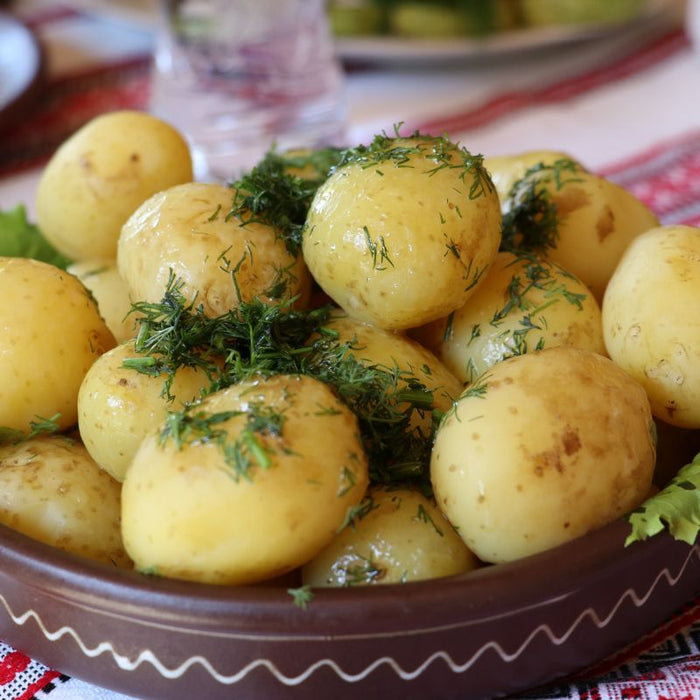
Fresh Dill - 100g
Perfect for making Tzatziki, a refreshing Southeast European or Middle Eastern dip.
Prepare also the Summery dill cucumber salad, potato salad freddo or with cooked or smoked salmon. If you would and could, throw in some strands of dill into a cast iron to smoke the dish with dill-infused oil.
Why Should You Eat More Herbs and Spices?
Herbs have been used since ancient times for their medicinal properties, mostly concentrated into teas and tinctures. More recently, their healthful value as a food ingredient has been realized. For one, herbs add a burst of flavor to food, allowing you to cut back on salt without sacrificing taste. And several herbs, including parsley, have significant amounts of the essential vitamins A, C and K.
But the true power of herbs lies in their wealth of protective polyphenols — plant compounds with potent antioxidant and anti-inflammatory effects. Piles of studies show that polyphenols in herbs help combat such diseases as cancer, heart disease, Alzheimer’s, diabetes and more. Polyphenols are anti-microbial, so they can help protect us from harmful bacteria as well. Although many of the studies on herbs’ effects have involved concentrated solutions of the leaves’ active components, there is evidence that their benefits still apply when they are cooked and eaten as part of a regular meal, too.
Credit : The Washington Post
Nutritional Information
One cup (9 grams) of fresh dill sprigs provides approximately:
Calories: 4
Vitamin C: 8% of the Daily Value (DV)
Manganese: 5% of the DV
Vitamin A: 4% of the DV
Folate: 3% of the DV
Iron: 3% of the DV
Fresh dill is very low in calories, yet a surprisingly good source of several essential vitamins and minerals, including vitamin C, manganese, and vitamin A.
Vitamin A is an essential nutrient that is important for maintaining vision and supporting a healthy immune system. It also plays a role in male and female reproduction.
Similarly, vitamin C is vital for your immune system and helps with bone formation, wound healing, and metabolism.
Additionally, it has been shown to be a potent antioxidant that helps protect your cells against damage caused by unstable molecules known as free radicals.
Dill is also a good source of manganese. While needed in very small amounts, it is an essential mineral that supports normal functioning of your brain, nervous system, and metabolism of sugar and fat.
Furthermore, fresh dill provides 1–2% of the DV for calcium, copper, magnesium, potassium, riboflavin, and zinc.
However, as fresh dill is usually consumed in smaller quantities than 1 cup (9 grams), the amount of nutrients you get from sprinkling it over your food will be considerably less.
As for dill seeds, they have many similar nutritional benefits. One tablespoon (6.6 grams) of seeds provides 8% of the DV for calcium, 6% of the DV for iron, and 1–5% of the DV for magnesium, manganese, phosphorus, and potassium.
Credit: healthline.com











